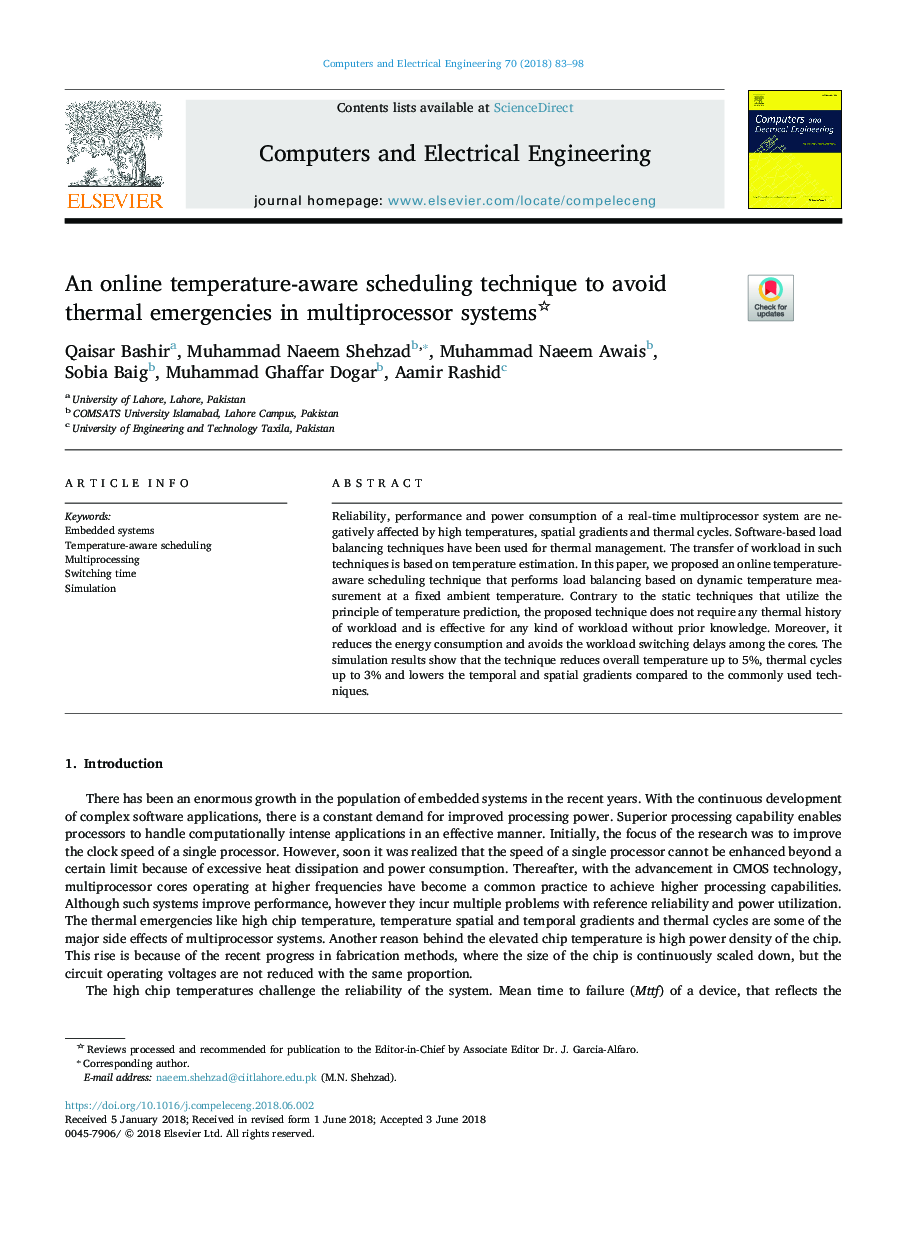| Article ID | Journal | Published Year | Pages | File Type |
|---|---|---|---|---|
| 6883268 | Computers & Electrical Engineering | 2018 | 16 Pages |
Abstract
Reliability, performance and power consumption of a real-time multiprocessor system are negatively affected by high temperatures, spatial gradients and thermal cycles. Software-based load balancing techniques have been used for thermal management. The transfer of workload in such techniques is based on temperature estimation. In this paper, we proposed an online temperature-aware scheduling technique that performs load balancing based on dynamic temperature measurement at a fixed ambient temperature. Contrary to the static techniques that utilize the principle of temperature prediction, the proposed technique does not require any thermal history of workload and is effective for any kind of workload without prior knowledge. Moreover, it reduces the energy consumption and avoids the workload switching delays among the cores. The simulation results show that the technique reduces overall temperature up to 5%, thermal cycles up to 3% and lowers the temporal and spatial gradients compared to the commonly used techniques.
Related Topics
Physical Sciences and Engineering
Computer Science
Computer Networks and Communications
Authors
Qaisar Bashir, Muhammad Naeem Shehzad, Muhammad Naeem Awais, Sobia Baig, Muhammad Ghaffar Dogar, Aamir Rashid,
